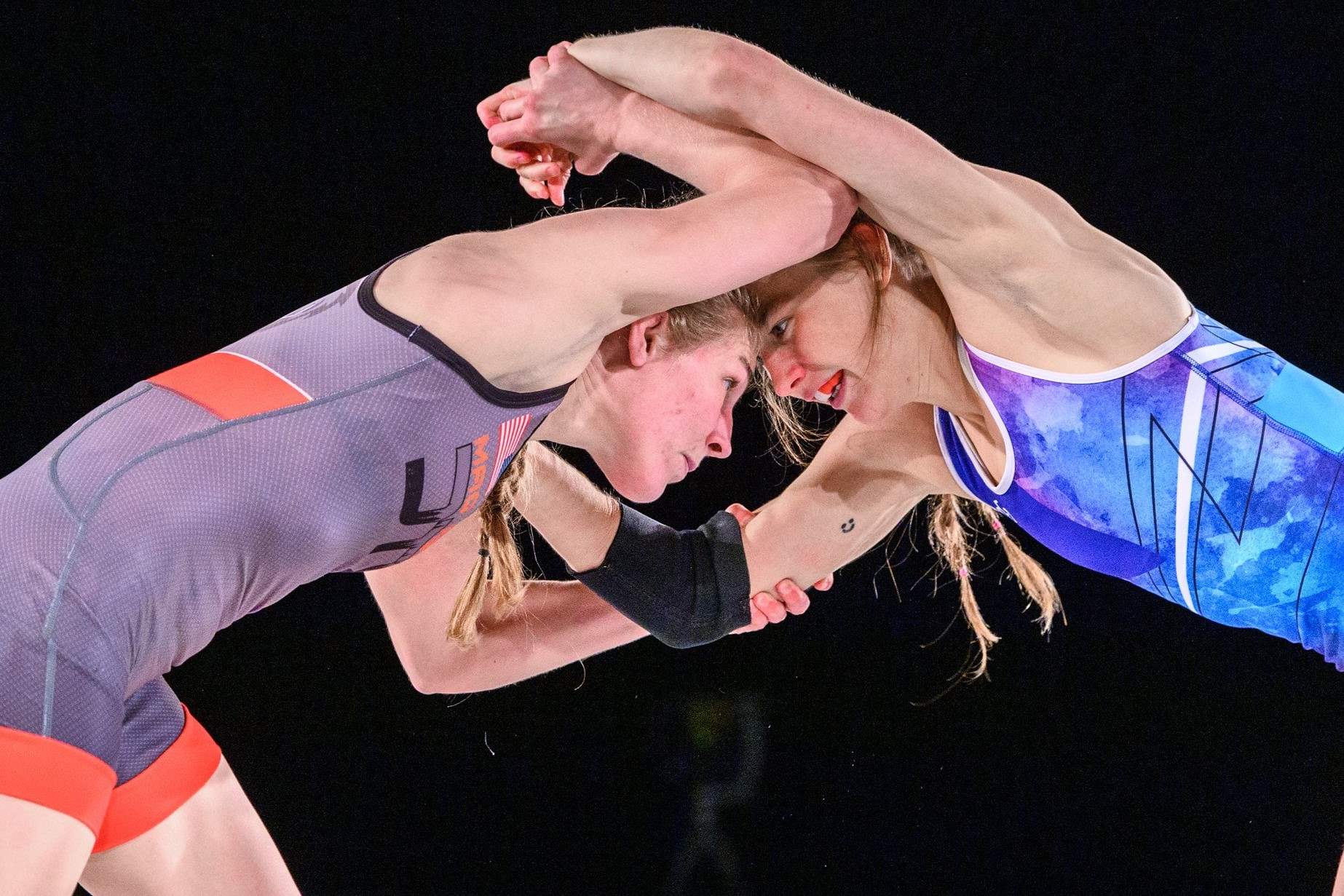
Women's wrestling history is packed with trailblazers, fierce rivalries, and unforgettable moments. Ever wondered how it all began? From the early days of carnival sideshows to the bright lights of WWE, women have fought hard for their place in the ring. Did you know that the first women's wrestling match in the U.S. took place in 1937? Or that the Fabulous Moolah held the Women's Championship for an astonishing 28 years? These athletes have broken barriers, shattered stereotypes, and inspired countless fans. Join us as we dive into 34 incredible facts that showcase the evolution, challenges, and triumphs of women's wrestling.
Key Takeaways:
- Women's wrestling has a long and fascinating history, from its early days in the 1930s to the groundbreaking events of recent years, showcasing the talent and resilience of female athletes.
- The future of women's wrestling looks bright, with new opportunities for emerging talent, dedicated promotions, and increased visibility through social media and video games, empowering female wrestlers to connect with fans and build their brands.
The Early Days of Women's Wrestling
Women's wrestling has a rich history that dates back to the early 20th century. Here are some fascinating facts about its origins and development.
- Women's wrestling began gaining popularity in the 1930s, with Mildred Burke emerging as one of the first female wrestling stars.
- Burke held the Women's World Championship for nearly 20 years, from 1937 to 1956.
- In the 1950s, women's wrestling was often featured in carnivals and sideshows, where it was seen as a novelty act.
- The first televised women's wrestling match aired in 1948, featuring June Byers and Mae Young.
- Mae Young, a pioneer in women's wrestling, continued to wrestle into her 80s, making her one of the oldest active wrestlers in history.
The Golden Era of Women's Wrestling
The 1980s and 1990s saw a surge in the popularity of women's wrestling, with many iconic wrestlers emerging during this period.
- The Fabulous Moolah, born Mary Lillian Ellison, held the Women's World Championship for an astonishing 28 years.
- Moolah was instrumental in training and promoting many female wrestlers, including Wendi Richter and Leilani Kai.
- Wendi Richter became a household name in the 1980s, thanks to her association with pop star Cyndi Lauper.
- The "Rock 'n' Wrestling Connection" between WWE and MTV helped bring women's wrestling into the mainstream.
- In 1993, Alundra Blayze (also known as Madusa) won the WWE Women's Championship, becoming one of the most prominent female wrestlers of the 1990s.
The Attitude Era and Beyond
The late 1990s and early 2000s, known as the Attitude Era, brought a new level of visibility and excitement to women's wrestling.
- Trish Stratus, a former fitness model, became one of the most successful female wrestlers of the Attitude Era.
- Lita, known for her high-flying moves, was a fan favorite and a four-time WWE Women's Champion.
- The first-ever women's main event on WWE's flagship show, Raw, took place in 2004, featuring Lita and Trish Stratus.
- Chyna, known as the "Ninth Wonder of the World," broke barriers by competing against male wrestlers and winning the Intercontinental Championship.
- The Women's Championship was rebranded as the Divas Championship in 2008, reflecting a shift in how female wrestlers were marketed.
The Women's Revolution
In recent years, women's wrestling has undergone a significant transformation, with a renewed focus on athleticism and storytelling.
- The "Four Horsewomen" of WWE—Charlotte Flair, Sasha Banks, Becky Lynch, and Bayley—have been at the forefront of this revolution.
- In 2016, WWE reintroduced the Women's Championship, retiring the Divas Championship.
- The first-ever women's Hell in a Cell match took place in 2016, featuring Sasha Banks and Charlotte Flair.
- WrestleMania 35 in 2019 marked the first time women headlined WWE's biggest event of the year, with Becky Lynch, Ronda Rousey, and Charlotte Flair competing in the main event.
- Becky Lynch became the first woman to hold both the Raw and SmackDown Women's Championships simultaneously, earning the nickname "The Man."
International Impact
Women's wrestling has also made significant strides on the global stage, with promotions around the world showcasing talented female wrestlers.
- Japan's All Japan Women's Pro-Wrestling (AJW) was founded in 1968 and became a powerhouse in women's wrestling.
- AJW produced legendary wrestlers like Manami Toyota, Aja Kong, and Bull Nakano.
- Mexico's Lucha Libre scene has a rich history of female wrestlers, known as "luchadoras."
- Luchadora Faby Apache has been a dominant force in Mexican wrestling for over two decades.
- The UK has seen a rise in women's wrestling, with promotions like Pro-Wrestling: EVE providing a platform for female talent.
Breaking Barriers
Women's wrestling continues to break barriers and set new standards for the sport.
- In 2018, WWE held its first all-women's pay-per-view event, Evolution.
- The Mae Young Classic, an annual tournament, has showcased female wrestlers from around the world since 2017.
- Tessa Blanchard made history in 2020 by becoming the first woman to win the Impact World Championship.
- AEW (All Elite Wrestling) has placed a strong emphasis on its women's division, featuring stars like Dr. Britt Baker and Hikaru Shida.
- Women's wrestling has also gained recognition in independent promotions, with stars like Jordynne Grace and Thunder Rosa making waves.
The Future of Women's Wrestling
The future looks bright for women's wrestling, with new talent emerging and opportunities expanding.
- WWE's Performance Center continues to train and develop the next generation of female wrestlers.
- Promotions like SHIMMER and Stardom are dedicated exclusively to women's wrestling, providing a platform for rising stars.
- Social media has allowed female wrestlers to connect with fans and build their brands like never before.
- Women's wrestling is now featured prominently in video games, with WWE 2K series including detailed female rosters and storylines.
Celebrating Women's Wrestling History
Women's wrestling has come a long way. From the early days of Mildred Burke to the groundbreaking achievements of Trish Stratus and Lita, the sport has seen incredible growth. These pioneers paved the way for today's stars like Becky Lynch and Charlotte Flair. Their dedication and passion have inspired countless fans and athletes.
The journey hasn't been easy. Women wrestlers faced numerous challenges, from limited opportunities to societal stereotypes. Yet, their resilience and determination have shattered barriers, making wrestling more inclusive and diverse.
As we celebrate these milestones, let's remember the importance of supporting and promoting women's wrestling. Their stories remind us that with hard work and perseverance, anything is possible. So next time you watch a match, think about the history and the trailblazers who made it all possible. Women's wrestling isn't just a sport; it's a testament to strength and courage.
Frequently Asked Questions
Was this page helpful?
Our commitment to delivering trustworthy and engaging content is at the heart of what we do. Each fact on our site is contributed by real users like you, bringing a wealth of diverse insights and information. To ensure the highest standards of accuracy and reliability, our dedicated editors meticulously review each submission. This process guarantees that the facts we share are not only fascinating but also credible. Trust in our commitment to quality and authenticity as you explore and learn with us.


